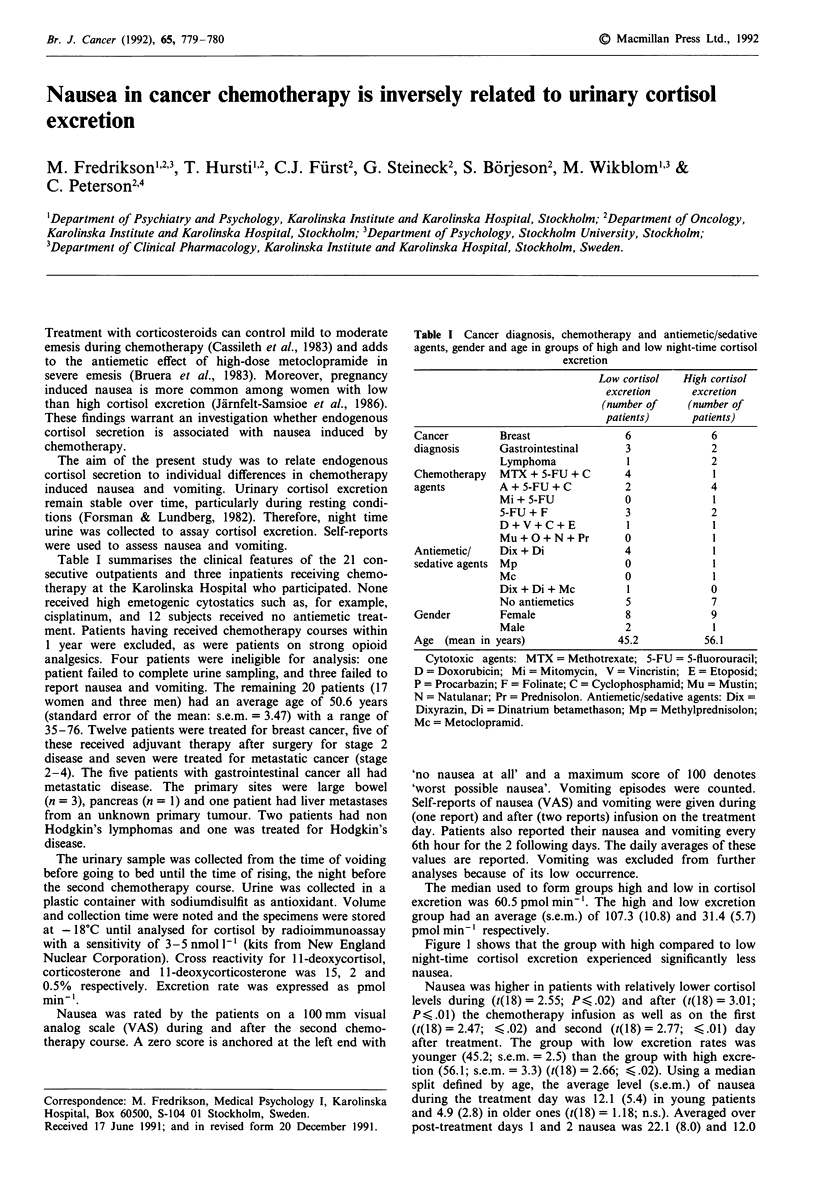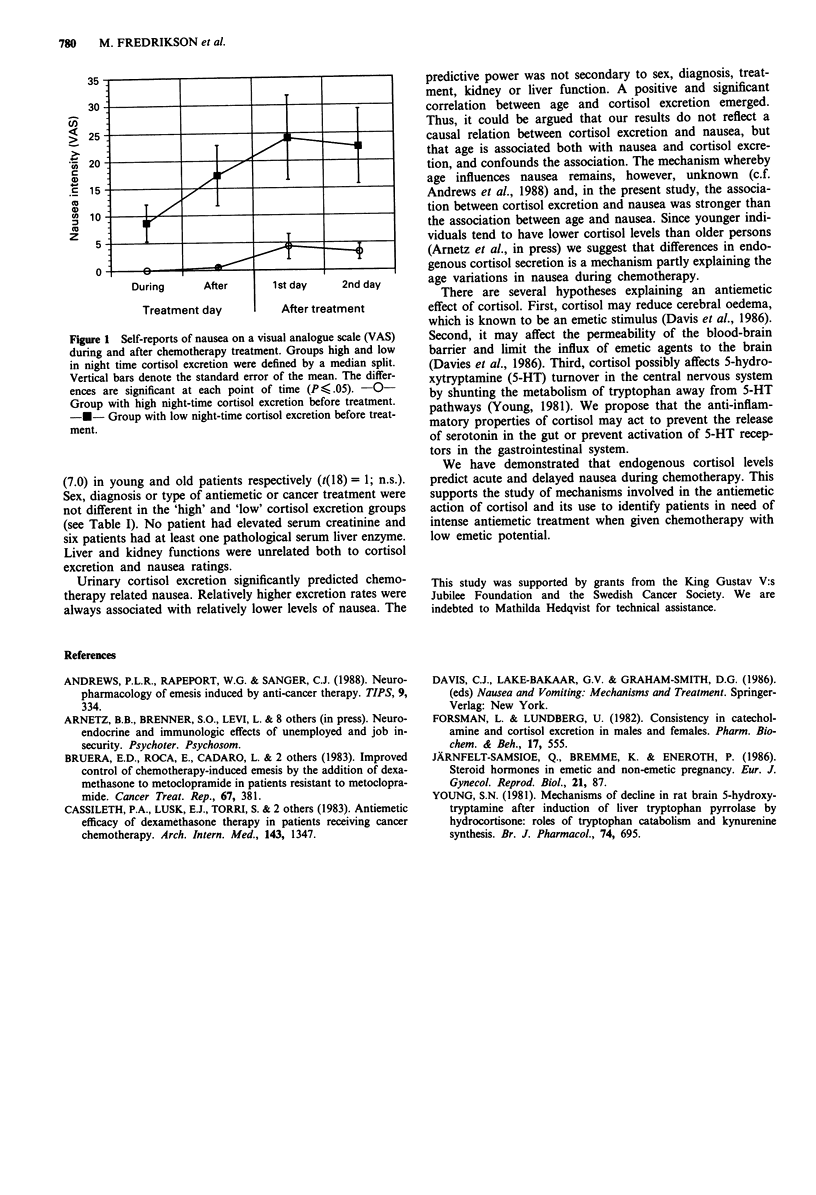Full text
PDF

Selected References
These references are in PubMed. This may not be the complete list of references from this article.
- Andrews P. L., Rapeport W. G., Sanger G. J. Neuropharmacology of emesis induced by anti-cancer therapy. Trends Pharmacol Sci. 1988 Sep;9(9):334–341. doi: 10.1016/0165-6147(88)90106-x. [DOI] [PubMed] [Google Scholar]
- Bruera E. D., Roca E., Cedaro L., Chacón R., Estévez R. Improved control of chemotherapy-induced emesis by the addition of dexamethasone to metoclopramide in patients resistant to metoclopramide. Cancer Treat Rep. 1983 Apr;67(4):381–383. [PubMed] [Google Scholar]
- Cassileth P. A., Lusk E. J., Torri S., DiNubile N., Gerson S. L. Antiemetic efficacy of dexamethasone therapy in patients receiving cancer chemotherapy. Arch Intern Med. 1983 Jul;143(7):1347–1349. [PubMed] [Google Scholar]
- Forsman L., Lundberg U. Consistency in catecholamine and cortisol excretion in males and females. Pharmacol Biochem Behav. 1982 Sep;17(3):555–562. doi: 10.1016/0091-3057(82)90318-5. [DOI] [PubMed] [Google Scholar]
- Järnfelt-Samsioe A., Bremme K., Eneroth P. Steroid hormones in emetic and non-emetic pregnancy. Eur J Obstet Gynecol Reprod Biol. 1986 Feb;21(2):87–99. doi: 10.1016/0028-2243(86)90047-x. [DOI] [PubMed] [Google Scholar]
- Young S. N. Mechanism of decline in rat brain 5-hydroxytryptamine after induction of liver tryptophan pyrrolase by hydrocortisone: roles of tryptophan catabolism and kynurenine synthesis. Br J Pharmacol. 1981 Nov;74(3):695–700. doi: 10.1111/j.1476-5381.1981.tb10480.x. [DOI] [PMC free article] [PubMed] [Google Scholar]


